Welcome
Vision
Learning for the future,
learning from the past.
“Richmond Park School aims to inspire every child to reach their full potential and become well-rounded, resilient, and compassionate global citizens who embrace change, contribute positively to society, and lead their lives with curiosity and integrity.”
Mission
“Our mission at Richmond Park School is to provide an engaging, holistic and personalised education that nurtures every child’s potential. We place each child at the centre of learning, fostering curiosity, critical thinking, resilience, and respect within a safe and supportive environment. Through a rich and varied curriculum, we promote high achievement, develop confidence and creativity, encourage empathy, nurture wellbeing and healthy lifestyles, and empower young people to discover their strengths and contribute positively as adaptable, compassionate global citizens in an ever-changing world.”
To be the best place to enjoy learning.
To become a key reference amongst British schools.
To achieve a unique identity for our students and staff.
For the whole school community to be proud of the school and to value and support its mission.
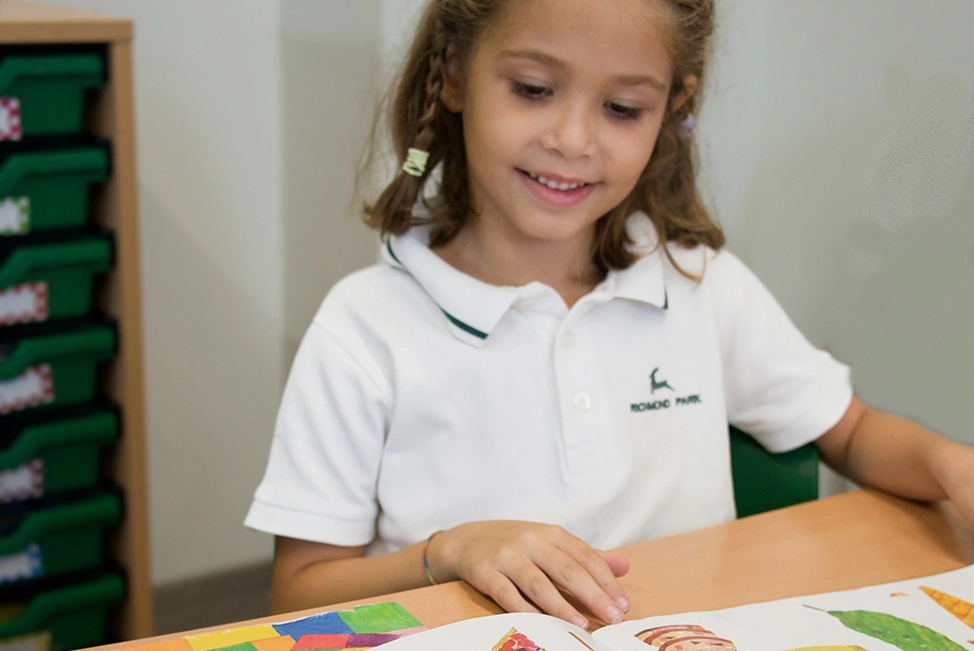
Values
R I C H M O N D – Richmond Park School Values
- Respect– Collaborating to treat everyone with dignity and empathy.
- Integrity – Acting ethically and responsibly in all we do.
- Community – Within RPS families and as local and global citizens promoting cultural awareness, sustainability, and social responsibility.
- High Standards – Striving for excellence in learning and behaviour.
- Mindset of Resilience – Using sport, enrichment activities and mindfulness to develop healthy bodies and minds, perseverance and adaptability.
- Openness and Inclusivity – Valuing diversity and ensuring equal opportunities for all.
- Nurturing Creativity – Fostering innovation and imaginative problem-solving
- Developing Curiosity– Encouraging a love of learning and independent thinking.
Curriculum
Joy in learning
Richmond Park School offers a curriculum based on the English National Curriculum but significantly broadened by the inclusion of co-curriculum subjects such as communication and thinking skills. We want our students to be fully prepared for a fast-changing world both ‘Learning for the future, learning from the past’.
While traditional values and approaches support our broad and rigorous academic programme, our co-curriculum extends and enriches learning experiences, providing academic excellence and sound personal and inter-personal skills. This programme, together with our emphasis on good health and well-being ensures our students are well prepared for the opportunities and challenges of the 21st century and life beyond school.
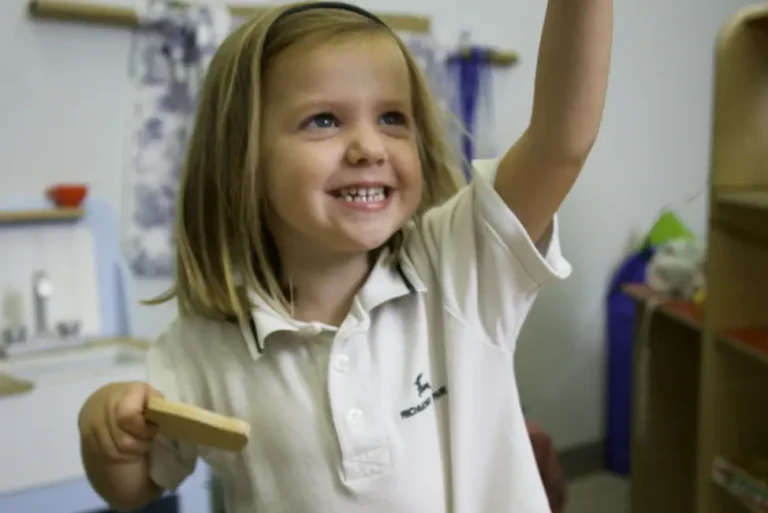
EYFS
The youngest children need opportunities to develop their self-confidence socially and emotionally by meeting new challenges on a daily basis in a safe and stimulating environment. Children are encouraged to be curious and creative through active and varied learning opportunities both inside and out in the fresh air.
Pre-Nursery2 to 3 years
A British programme is provided, based on the 0-5 years learning programme:
- Emotional and social development
- Learning basic routines and developing autonomy and independence
- Becoming familiar with English through stories, songs, games and art activities
Nursery 3 to 4 years
Reception 4 to 5 years
The Early Years Foundation Stage curriculum is introduced. Areas of Learning:
- Communication and language
- Physical development
- Personal, social and emotional development
- Literacy
- Mathematics
- Understanding the world
- Expressive arts and design
Primary
Enthusiasm for learning is encouraged through a wide variety of teaching approaches that include investigation and discovery, questioning and creative responses.
Academic and personal learning are consolidated and extended during the Primary years. Students are encouraged to be independent learners and also to work co-operatively with others. We expect our pupils to show an increasing awareness of the world community and their own social responsibility as they move on to Secondary education.
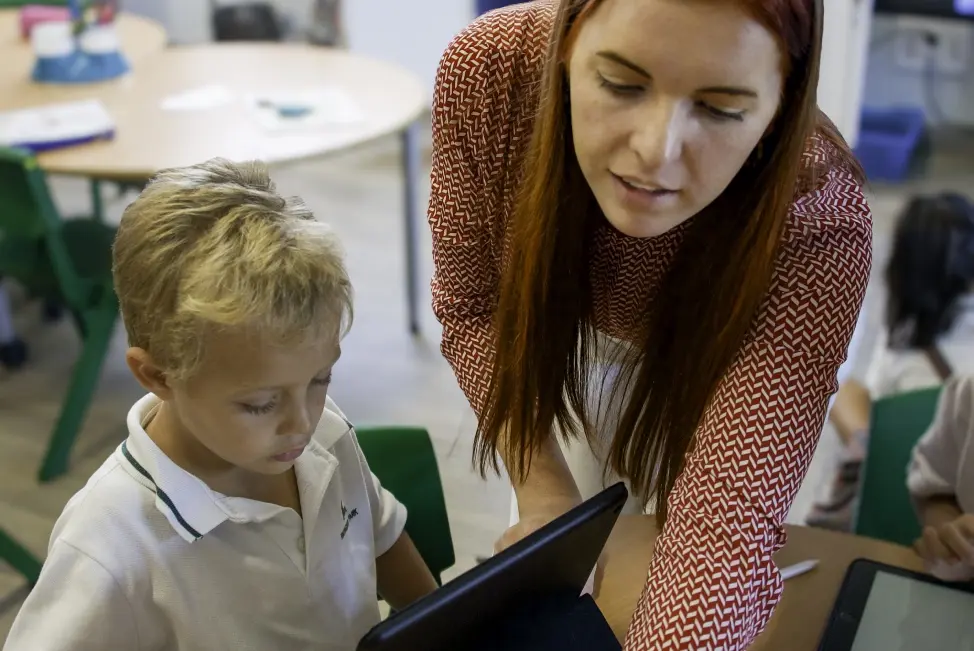
The next six years are divided into two
stages as follows:
- Key Stage 1 – Years 1 and 2 (5 to 7 years old)
- Key Stage 2 – Years 3 to 6 (6 to 11 years old)
- Years 3 and 4 are referred to as Lower Key Stage 2
- Years 5 and 6 are referred to as Upper Key Stage 2
The curriculum for these Key Stages is based on the National Curriculum for England with the inclusion of the official Spanish language and humanities (Conocimiento del Medio)
Subject Areas:
- Literacy (core subject)
- Maths (core subject)
- Science
- Computing
- Geography
- History
- Art and Design
- Music
- PE
- PSHE
- Spanish
The core subjects are taught discretely while others are integrated within our topics.
We recognise that young people develop with different needs and progress at different rates. We aim to recognise, encourage and support such as for dyslexia and also those who are particularly able or gifted.
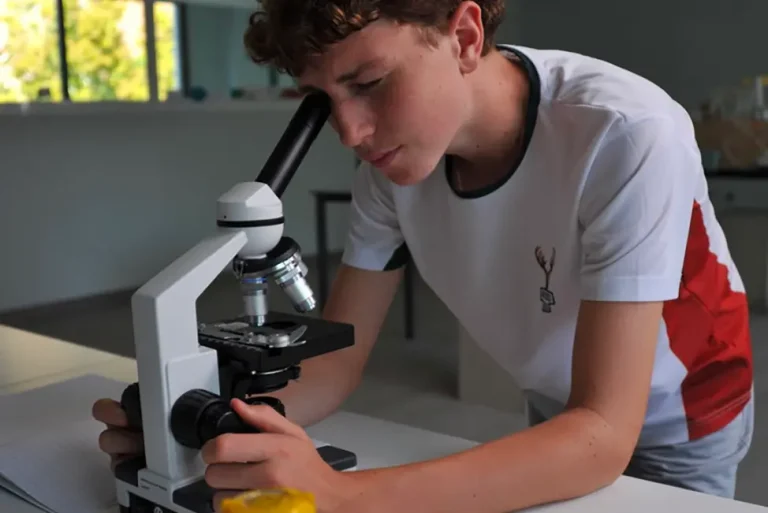
Secondary
In the secondary school, we aim to provide continuity and progression from the primary section. It is vital that students keep learning in creative, varied and stimulating ways. They have to be motivated and curious, wanting to discover more knowledge and ideas, finding new ways to think and resolve problems, working together, listening to, and learning from each other. Above all, students must never lose the joy of learning, even when they face the challenge of external examinations.
We provide a broad and balanced curriculum, complemented by co- curricular themes such as communication and thinking skills. Students are well prepared for the multiple opportunities and challenges of modern society.
Key Stage 3 curriculum:
- English language and literature
- Mathematics
- Science
- Spanish studies
- Computing
- Geography
- History
- Art and design
- Music
- Physical education
- PSHE
Key Stage 4 curriculum:
- English language and literature
- Mathematics
- Science (3 sciences)
- Spanish studies
- Physical education
- 2 optional subjects
Students usually study seven obligatory subjects and two optional subjects, leading to examination at the level of International General Certificate of Secondary Education (IGCSE).
At Richmond Park School we will be offering courses that enable our students to progress to the best Universities within Spain and internationally. Many of our teachers have previously taught UK A Levels and / or the International Baccalaureate and we are working to develop our exciting and engaging post 16 offer.
We will be planning to include the following subjects in our offer for students after they complete IGCSEs:
- English
- Mathematics
- Physics
- Chemistry
- Biology
- Spanish
- French
- Geography
- Sports Science
- Business Studies
- Art and Visual Studies
Richmond Park School IB Centre
Why should you choose RPS IB Centre?
At RPS we are striving to become a reference school in all aspects of education, in all key stages of a student’s academic journey, and particularly now as we open our post 16 provision – RPS IB Centre. Our commitment to developing excellence is evident in our new IB Centre (IBC), we realise the importance of this last phase of our students´ education as they prepare to enter some of the top universities internationally. The owners, senior leaders and every staff member share our vision of “making sure every child meets their full potential and is ready to become a happy citizen that can contribute positively to the future world in which they will be living”.
With our experienced and greatly talented team of professionals, we have teachers who understand very well the impact they need to have on students in order to obtain the best outcomes for them. We have recruited and retained well trained and experienced teachers and ensured the school has provided them with all the resources and equipment needed to make sure all students can meet their ambitions and expectations. Our commitment is evident in our state-of-the-art new building, strategically annexed to the existing secondary section which provides a personalised 600m² structure with a modern style where students can have a fantastic Young Adult Experience (YAE) before they enter university. Our design is comfortable, business oriented and equipped with the latest technology so that that our IB Centre will provide everything that the International Baccalaureate Diploma programme requires for the successful education of our students.
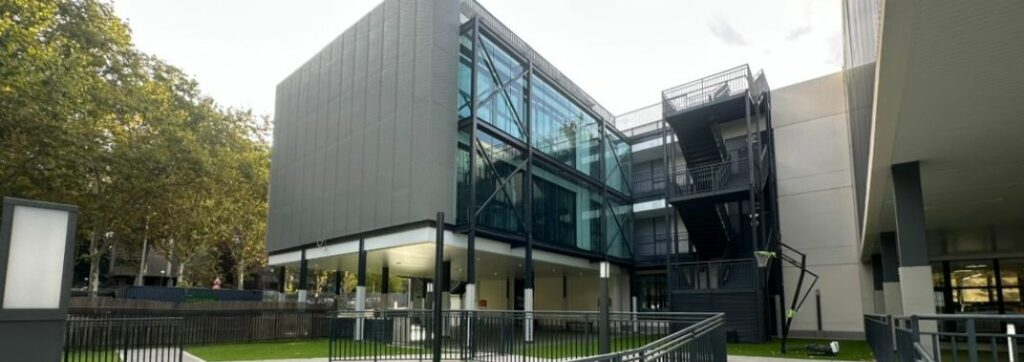
What is the International Baccalaureate (IB) Diploma programme?
The International Baccalaureate (IB) Diploma Programme is increasingly recognised as one of the most comprehensive and robust educational qualifications available globally. For students at British schools in Spain, the IB offers numerous advantages that make it an excellent choice, which is why we chose to work towards being able to offer the IB at Richmond Park School.
The IB Diploma Programme is renowned for its rigorous academic standards, which challenge students to develop critical thinking and problem-solving skills. Students who undertake the IB are exposed to a curriculum that encourages depth and breadth of knowledge. The programme requires students to study six subjects across different disciplines, ensuring a well-rounded education.
These subjects include:
- Spanish
- English
- French
- Business Management
- Geography
- History
Art subjects:
- Visual Arts
Science and mathematical subjects:
- Mathematics
- Physics
- Chemistry
- Biology
- Computer Science
- Sports and Health Science
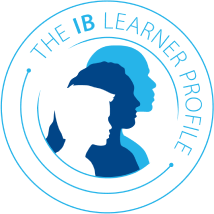
Furthermore, the IB emphasises independent research through its Extended Essay, a 4,000-word research paper on a topic of the student’s choice. This component develops essential academic skills, such as formulating research questions, conducting independent research, and presenting findings coherently. For our students, these skills are invaluable, as they prepare them for the demands of higher education and professional environments, where such abilities are highly prized.
One of the key strengths of the IB Diploma is its holistic approach to education, which aligns well with contemporary educational philosophies in British Schools. The programme does not solely focus on academic achievements but also on the personal development of students. The IB aims to develop inquiring, knowledgeable, and caring young people who are motivated to succeed. This is achieved through the programme’s core components: the Theory of Knowledge (TOK) course, the Extended Essay, and Creativity, Activity, Service (CAS).
The TOK course encourages students to reflect on the nature of knowledge and how we know what we claim to know. This course is particularly beneficial for students as it promotes critical thinking and philosophical inquiry, encouraging them to question and understand different perspectives. CAS, on the other hand, requires students to engage in various extracurricular activities, fostering personal and interpersonal development through experiential learning. By participating in creative projects, physical activities, and community service, our students develop a sense of social responsibility and a balanced lifestyle, which are crucial for their overall well-being.
The IB Diploma is recognised by universities worldwide, including top institutions in Spain, Europe and beyond. This international recognition provides students with a competitive edge when applying to universities, both domestically and internationally. Spanish universities, such as the Universidad Complutense de Madrid and the Universidad de Barcelona, acknowledge the rigor and comprehensive nature of the IB, often offering special admission considerations for IB graduates.
We are excited to be a new IB centre in Madrid.
Our IB Diploma Programme
Enrolment in the full diploma
Richmond Park School will enrol students who agree to commence the Full Diploma Programme:
3 subjects at SL
3 subjects at HL
Diploma Programme Core
- Theory of Knowledge
- Creativity, Activity, Service
- Extended Essay
Group 1
STUDIES IN LANGUAGE AND LITERATURE
Is the study of literature in a student’s first language, including the study of selections of world literature
Group 2
LANGUAGE ACQUISITION
Emphasizes language acquisition and use in a range of context and for different purposes
Group 3
INDIVIDUALS AND SOCIETIES
Provides for the development of a critical appreciation of human experience and behavior, the varieties of physical, economic and social environments that people inhabit and the history of social and cultural institutions
Group 4
SCIENCES
Consists of subjects such as biology, chemistry, computer science, sports science and physics. Each of these subjects contains a body of knowledge together with scientific methods and techniques which students are required to learn and apply
Group 5
MATHEMATICS
Enables students to develop mathematical knowledge, concepts and principles; develop logical, critical and creative thinking; employ and refine their powers of abstraction and generalization. Students are also encouraged to appreciate international dimensions of mathematics and the multiplicity of its cultural and historical perspectives
Group 6
THE ARTS
Includes visual arts. These subjects allow a high degree of adaptability to different cultural contexts with the emphasis on creativity in the context of disciplines, practical research into the relevant genres
Facilities
Facilities




ADMISSIONS DEPARTMENT
Contact details:
Nieves Norris
Tel.: +34 677.25.78.68
Email: info@richmondpark.school
Requirements for entry
Requirements for entry
At Richmond Park School we aim to offer an International Baccalaureate Diploma Programme to our students who wish to continue their studies at the end of Secondary School IGCSE Year 11.
The requirements for our current Y11 students are slightly different than for students coming from another school.
Richmond Park School student requirements:
- Enrol in the Baccalaureate by selecting appropriately the subjects of the list offered by the school (prior knowledge in Science, languages and Mathematics subjects will be taken into account).
- Students to have passed the Spanish Secondary Programme (ESO) and hold 5 IGCSE qualifications.
- Minimum entry requirements –Cs in English Lang & Maths plus 3 Bs in other subjects.
- Min. B in Maths for Maths HL. Min. BB in Combined Science for Biology or Chemistry HL. Min. BB in Coordinated Science and B in Maths for Physics HL
- Show an academic and personal school trajectory in accordance with the philosophy of the IBO.
- Age between 16 and 18 years old.
Students who come from a Spanish or other international school:
- Enrol in the Baccalaureate by properly selecting the subjects from the list offered by the school.
- Have passed the approved the Spanish Compulsory Secondary Education programme or the equivalent secondary education programme from their country of origin. Where IGCSEs are taken then the student must meet minimum entry requirements –Cs in English Lang & Maths plus 3 Bs in other subjects. Min. B in Maths for Maths HL. Min. BB in Combined Science for Biology or Chemistry HL. Min. BB in Coordinated Science and B in Maths for Physics HL
- Prove a good level of English (first certificate or Advanced Cambridge) or, failing that, take an oral and written test at our school.
- Pass a maths test to assess the student’s level in this subject.
- Submit a letter of application and a positive set of references from previous school(s).
- Show an academic and personal school trajectory in accordance with the philosophy of the IBO.
- Complete a successful interview with the IB Coordinator, the Secondary Leader, including meeting the student’s parents or guardians.
- Age between 16 and 18 years old.
IMPORTANT - Admission of Students with ALN:
Students with Additional Learning Needs will be able to access the IB at Richmond Park School, as long as they meet the requirements established by the IB Organisation for these cases, and the general conditions indicated for all students. More detail is in our Access and Inclusion Policy.
2025/26 IB Centre scholarships
2025/26 IB Centre scholarships
We are happy to announce the following three scholarships (not full scholarships) that will be granted to our first cohort of IB centre students, this is a sum of money that can help students and their family towards their future studies awarded at the end of the IB Diploma programme.
Once students have completed the 2-year programme (Years 12 & 13) at RPS at the end of June 2027, in their graduation ceremony and according to their success within the IB Diploma programme (overall IB score and participation in activities such as CAS), we will be giving out the following 3 scholarships:
- Golden IB Diploma student: 30% of full tuition (not including any extras) according to RPS official fees for Yr 12 & 13 back to the family as a bank cheque.
- Silver IB Diploma student: 20% of full tuition (not including any extras) according to RPS official fees for Yr 12 & 13 back to the family as a bank cheque.
- Bronze IB Diploma student: 10% of full tuition (not including any extras) according to RPS official fees for Yr 12 & 13 back to the family as a bank cheque.
Students with Additional Learning Needs will be able to access the IB at Richmond Park School, as long as they meet the requirements established by the IB Organisation for these cases, and the general conditions indicated for all students. More detail is in our Access and Inclusion Policy.
CO - Curriculum
Sustainable development goals
Co-curricular projects and experiences sit alongside the main curriculum and provide greater breadth and depth.
Our sustainability programme is a perfect example of how Richmond Park School will enable our pupils to know and understand so much more about the world. Over the years, they will participate actively and creatively in integrated projects based on the 17 United Nations Sustainable Development Goals.
In the second and third terms of our initial academic year, pupils will focus on the themes of water, energy, and peace. After that, the programme -gradually covering all the UN objectives-will be a permanent feature of the pupils’ education. In a deep sense they will develop their own inner sustainability, founded on key values, thoughtfulness, empathy and compassion, which will allow them to sustain other people and cultures, and the global environment.